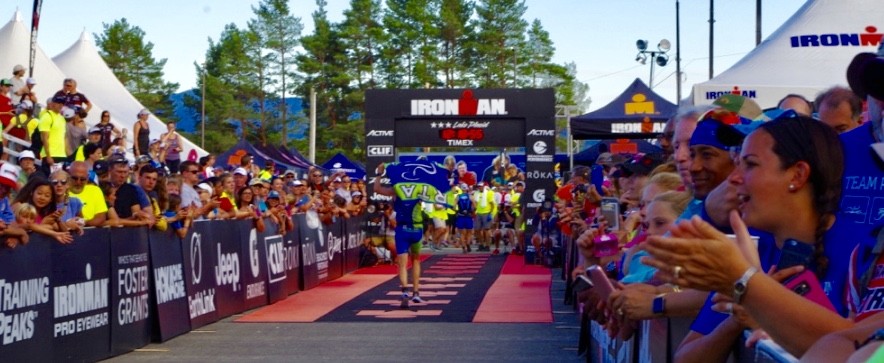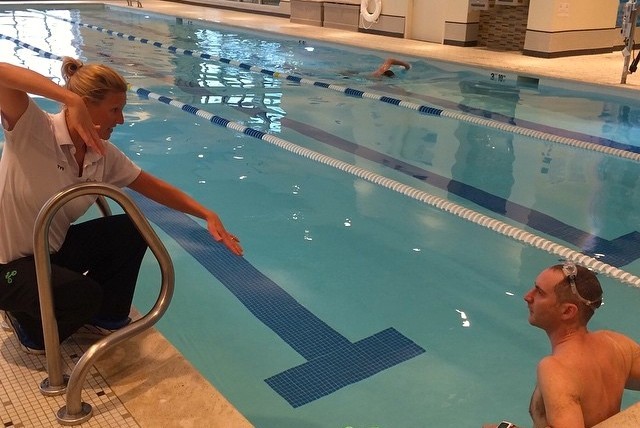Champions Are Made in the Off Season Are you ready for a break through year? A great year of racing starts with what an athlete does in their off season. Regardless if you’re in a position to win your next race, continual self improvement is one of the driving factors that keep many triathletes motivated. There’s not much more satisfying then setting a new PR or completing a longer distance triathlon for the first time. The off season is the perfect time to set yourself up for success come next year. Quite simply, there’s no pressure of an immediate upcoming triathlon you want to do well at. This provides you and your coach with a great deal of flexibility in your training schedule to make significant improvements and yield serious results for next season. Below we will discuss a few ways you can take action and make the most of your off season. Clear Goals If you don’t know where you want to go, it’s impossible to know how to get there. It’s important to establish clear goals. Once you know what you’re looking to achieve, you can determine how best to take care of business. The goal of “get faster” is a good place to start, but you’ll want to get a little more specific then that. In fact the more specific you are, the better. How do your swim, bike, run and transition times compare to those in your age group? Do you want to become a stronger cyclist? How much stronger / faster? This can be based on MPH or watts (which I recommend). Do you need to improve your climbing ability on your bike? Have you been injury prone over the years and want to increase your overall durability? Once you have determined what you need to improve, you can begin to decide how you will make the improvements you desire. Working with an experienced coach to determine “the what” and “the how” will help significantly. Work On Your Limiters Most triathletes enjoy doing what they’re good at and avoid the things they stink at. The problem is if you continuously avoid your weaknesses, you’re NEVER going to improve. Instead of thinking about them as a sore spot, think of them as opportunities for improvement. In the off season you have plenty of time to give additional focus to your limiter(s). “Attention” may be as simple as spending more training time in this particular discipline or it can be a bit more complex. More experienced athletes looking for extra improvement in a particular area, may need to train specific energy systems (aerobic, muscular endurance, threshold endurance, VO2, Lactate Threshold, ect). Separately and/or in addition to the above, improvement in your form and technique may significantly aid in your development. It is not uncommon to do a specific training block where the focus is on the area you’re looking to improve. That’s not to say you won’t continue to train the other disciplines during this time, but instead but them on “maintenance mode.” This can be done at select periods during the season but it is best achieved in the off season. Technique & Form Every athlete can improve their technique. Even the best athletes in the world regularly tweak and refine their form. Depending on what you’re working to improve it is very likely all intensity (especially during technique oriented sessions) is taken out of the plan for this discipline. There’s no sense to go hard or go fast if you’re not moving in the correct way to begin with. Some coaches won’t allow their athletes (even olympic & pro level athletes) to move past low intensity workouts until they have their technique down cold. The off season is the perfect time to improve technique in 1 or all areas of the sport because there is no pressure to be “race ready” for a while. This may all sound boring, but the pay offs can and will be BIG if you commit to this. Not only will your speed and efficiency improve by leaps and bounds, but improved injury resistance will be another by product. Remember, nothing happens over night. Patience and repetition is EXTREMELY IMPORTANT when it comes to improving technique. Strength, Flexibility & Mobility Most triathletes and runners are pathetic when it comes to strength, flexibility and mobility. As such this is an area most can greatly benefit from (especially if your over the age of 35). The “patheticness” is mostly due to lack of time and know-how. Needless to say, endurance training is the primary focus for most. And with a time demanding training schedule on top of work, family and other commitments, it’s tough to do anything but the absolute necessary. Somewhat paradoxically, the other reason this stuff gets put on the back burner is laziness. No matter how busy you are, we can all find an extra 15, 30 or 60 minutes a week. Even during your season when time is most limited, finding time to regularly working on strength, flexibility and mobility can be game changing for many triathletes and runners. Regardless of your limited time during your season, the off season presents the perfect opportunity to work on your strength, flexibility and mobility. These 3 forms of exercise are part of the secret sauce to longevity (& performance) in your sport. Each category helps with injury resistance and overall improved performance. Improved range of motion and flexibility will help maximize your power and speed. All 3 work together. Further, being proficient (or better) in each category of exercise will help allow you to maintain good form longer during training days and races (especially long ones). Plan to integrate these forms of exercise 2-3 times a week during the off season. You can and should warm up with some type of cardio. 10-20 minutes of running is great. You can also swim, bike or do something different. This is the perfect way to mix up your regular endurance training schedule with something fresh and different. The great thing is you can be confident your efforts will directly benefit your race results next year. Minimize Weight Gain Off season weight gain is normal and it’s actually not a bad thing. Before you get too excited, put the ice cream down for a second. It’s not necessarily healthy to be at your “race weight” year round (unless of course your “race weight still puts you in the category of “overweight” according to your doctor). However, it’s important to keep it under control. It’s different for everyone, but if you had to put a number on it, limiting weight gain to 8% of your race weight or 10 lbs (whichever is less) is a good place to start. Don’t forget this is from your race weight, which may not be the weight you ended the season at. The main thing, is setting a weight limit for yourself. This will help keep you in check as you navigate the 6 weeks of the year between Thanksgiving and New Years. It’s also another reason why it’s good to work with a coach during this time of year. Accountability! In the end it’s much better to begin your new training / race season without too much additional baggage. Imagine what you can achieve and how much more productive your training can be if you don’t have to worry about shedding significant weight at the beginning of the year. We hope you enjoyed this article. If you would like to read more like it, check out the BLOG section of our website. To learn more about how we can help set you up for a break through season, visit our coaching page or contact us to set up a FREE Training Consult. We love to talk triathlon, so don’t be shy.
Comments are closed.
|
Categories
All
Archives
July 2024
|
RTA TriathlonRTA is a comprehensive triathlon coaching organization and fully supported USAT sanctioned triathlon club.
We are based in Ridgewood, NJ and coach triathletes of all abilities from across the country. Our mission is to make you a better triathlete. Contact us when you're ready to take your "game" to the next level. |
|
|
Quick Links |
Let's get social
RTA Triathlon
Copyright © 2022
Copyright © 2022



 RSS Feed
RSS Feed
